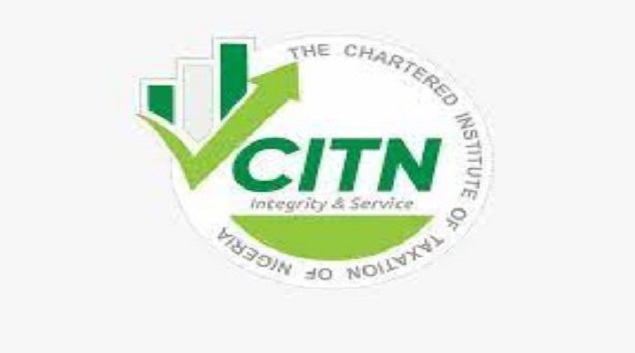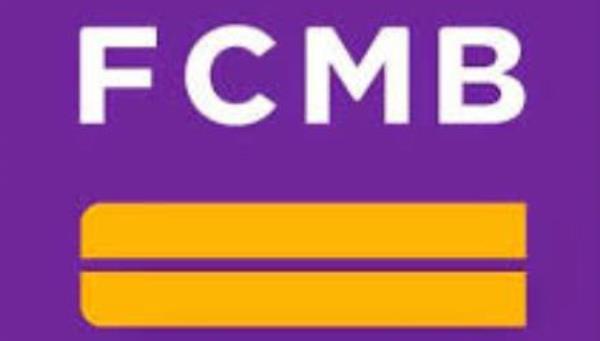E-Financial
Remittance to Sub-Saharan Africa Expected to Decline by 23% in 2020

Global remittances were projected to decline sharply by about 20% in 2020 due to the economic crisis induced by the COVID-19 pandemic and shutdown.

Remittance flows to Sub-Saharan Africa are expected to decline by 23.1% to reach US$37-billion in 2020, while a recovery of 4% is expected in 2021.
This is according to figures from the World Bank says multinational ICT and telecommunications firm Huawei. The company asserts that digital financial services (DFS) offers a new means for people, government and businesses to transact in a cashless way.
“With the pandemic forcing people to socially distance themselves from others, the adoption of DFS has been increasing across countries like Nigeria, Ghana and South Africa. In Kenya where mobile money has already made great inroads, the government has actively promoted cashless transactions as a means to limit contact spread of the virus,” says Edison Xie, Director of Media Affairs, Huawei Southern Africa Region.
Huawei references A MasterCard global consumer study conducted in April 2020 which indicated that 75% of South African consumers were using contactless payments with 88% of the South African respondents viewing contactless as a cleaner and faster way to pay and to limit the amount of time spent in stores.
The tech firm adds that estimates for DFS adoption globally may be as high has 67% post-pandemic adjusted 5-10% upwards from pre-pandemic estimates of 57% (Forbes Africa, 2020).
Yet for the most marginalised and vulnerable in our economies and in society, some barriers remain that prevent more widespread adoption and use of DSF for remittances, the company states.
“The most expensive corridors are observed mainly in the Southern African region, with costs as high as 20 percent. At the other end of the spectrum, the less expensive corridors had average costs of less than 3.6 percent,” says Xie.
The World Bank estimated a cost of around 6.7% on a remittance value of US$200, but for Sub Saharan Africa, this cost rose to 9% even through intra-regional migrants in Sub-Saharan Africa comprised over two-thirds of all international migration from the region.
The United Nations estimated that between US$200-300 was spent on the costs of transfers (United Nations, 2020).
Xie says that the major contributor to the high costs of remittances is the costly operations of cross-border money operators handling cash transfers.
“Reducing the reliance on cash transfers and currency exchanges is thus an important way to reduce remittance costs for those sending money to Sub Saharan countries. Digital money transfer options become essential to facilitating lower costs remittances for migrant workers,” he said.
Huawei believes as DFS adoption increases and the ecosystem expands to bring in more services suited to the market it serves, evolution of the platforms coupled with increased support from government in the form of consumer protection, costs of remittances can be expected to gradually reduce.
E-Financial
CITN Tasks New Tax Professionals to Shape Fiscal Policies for Efficient Tax System

Mr. Samuel Agbeluyi, the President of the Chartered Institute of Taxation of Nigeria, has charged incoming tax professionals to see their roles as critical to shaping Nigeria’s fiscal policies and building a more efficient tax system.

Agbeluyi gave the charge on Tuesday at the opening of the April 2025 Pre-Induction Orientation Programme held in Abuja.
While addressing participants, the CITN President said the orientation marked not just a personal achievement for inductees but the beginning of a greater national responsibility.
According to him, “Ultimately, it is expected that at the end of this programme and the induction thereafter, the number of tax professionals in the roll call of the CITN and indeed Nigeria would grow.
“Most importantly, more professionals would be added to the struggle of building an efficient and effective tax system in Nigeria, whilst influencing government fiscal policies and adding immense value to various stakeholders.”
Agbeluyi stated that the institute’s charter empowers it to determine the standard of knowledge and skills required to become a professional in the field, adding that the training was a deliberate step towards producing competent tax administrators capable of delivering value in the Nigerian economy.
He also noted that facilitators had been carefully selected from among experienced tax professionals and administrators to guide inductees using practical scenarios.
In her remarks, the Deputy Director of the CITN Tax Academy, Mrs Yetunde Suleiman, said the training was designed to expose participants to key developments in national and international tax administration, as well as emerging issues in the digital economy.
She noted that taxation remained central to Nigeria’s economic development and urged the inductees to take their training seriously in light of growing challenges in the country’s tax system, such as evasion, ambiguity of laws and high compliance costs.
Suleiman said, “There is a continuous need to produce, train and unleash qualified tax professionals to tackle these hydra-headed tax challenges.”
She urged participants to approach the sessions with enthusiasm, noting that the knowledge acquired would prepare them to become ambassadors of the institute and sound professionals equipped to drive reform in the tax space.
E-Financial
FCMB Capital Markets Leads ₦11.85bn GLNG Bond for LNG Plant Expansion

FCMB Capital Markets Ltd. successfully led the issuance of GLNG Funding SPV Plc’s ₦11.85 billion 10-Year Series 2 Senior Guaranteed Fixed Rate Infrastructure Bond, which closed in February. This milestone underscores investor confidence in Nigeria’s clean energy transition.

The bond, issued by GLNG Funding SPV Plc and sponsored by Green Liquified Natural Gas (GLNG) as part of its capital-raising plans, is a key step in financing the construction of a mini-LNG plant with a liquefaction capacity of 200,000 standard cubic meters of gas per day.
The facility will help bridge Nigeria’s power supply gap and offer industries a cleaner, cost-effective alternative to diesel.
The issuance was backed by InfraCredit, an AAA-rated infrastructure credit guarantee firm, and is expected to generate over 500 direct and 2,000 indirect jobs, supporting Nigeria’s sustainable economic growth.
“FCMB Capital Markets remains committed to financing projects that drive clean energy adoption and long-term economic impact,” said Ikechukwu Omeruah, Managing Director, FCMB Capital Markets Limited.
“We appreciate the trust placed in us by GLNG and the invaluable role played by InfraCredit and investors in enabling the successful conclusion of this transaction.”
As gas adoption accelerates in Nigeria, a 2022 Clarke Energy report estimates that manufacturers could save up to 30% by switching to gas from the grid and as much as 80% compared to diesel.
FCMB Capital Markets, a part of FCMB Group, has been instrumental in raising over ₦3 trillion in debt and equity capital for leading corporate organizations in Nigeria over the past five years, reinforcing its position as a key player in the country’s capital markets.
E-Financial
How Nigerian Banks Earned N14.26 Trillion in Interest Income in 2024

Nine leading Nigerian banks collectively generated N14.26 trillion in interest income in 2024, reflecting a 119.55% increase from N6.49 trillion in 2023.

This surge is attributed to the Central Bank of Nigeria’s Monetary Policy Committee raising benchmark interest rates to combat inflation, which reached 34.80% by the end of the year.
Among the banks, Zenith Bank recorded the highest actual income increase, while First Holdco led in percentage growth. Access Holdings, UBA, GTCO, Stanbic IBTC, FCMB Group, Fidelity Bank, and Wema Bank also reported significant gains.
However, a portion of this income was derived from non-performing loans, raising concerns about the sustainability of these earnings.
In contrast, the manufacturing sector faced operational costs of N2.5 trillion, with high interest and energy expenses straining growth. Industry leaders have called for a halt to further rate hikes, warning of potential risks to the real sector’s recovery.
This financial dynamic underscores the contrasting fortunes of Nigeria’s banking and manufacturing sectors. What are your thoughts on these developments?

 Telecom2 days ago
Telecom2 days agoDigital Transformation Remains Africa’s Gateway to Economic Advancement – Adumike

 Telecom2 days ago
Telecom2 days agoPAFON 2.0: Experts Discuss Pathways to Boost Financial Inclusion in Nigeria

 General News2 days ago
General News2 days agoEFCC Clarifies SCUML Certificate Misuse amid CBEX Ponzi Scheme Scandal

 E-Financial2 days ago
E-Financial2 days agoCBN, NGX Group Defend Economic Reforms at Nasdaq

 Telecom1 day ago
Telecom1 day agoMTN Nigeria Faces Class Action Lawsuit over Alleged Data Mismanagement

 Telecom1 day ago
Telecom1 day agoNigeria Hits 1 Terabit Internet Traffic Milestone

 General News1 day ago
General News1 day agoFG to Introduce New Tax Credit Scheme to Replace Pioneer Status Incentive

 E-Financial1 day ago
E-Financial1 day agoFCMB Capital Markets Leads ₦11.85bn GLNG Bond for LNG Plant Expansion















